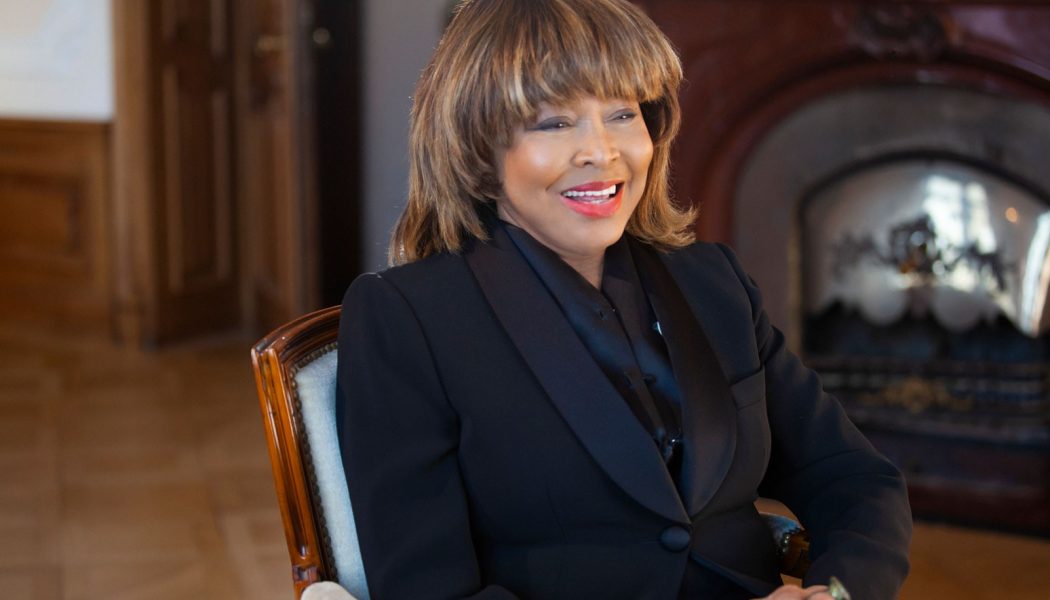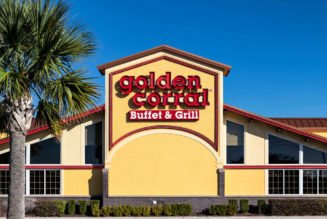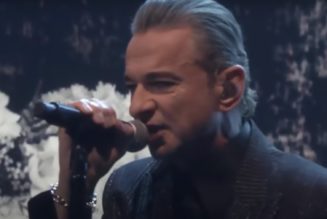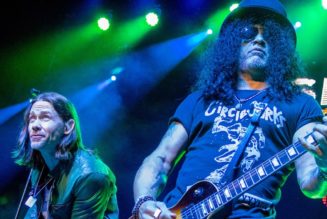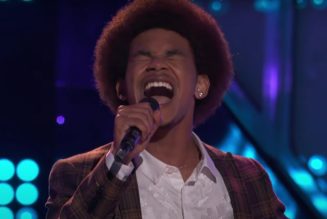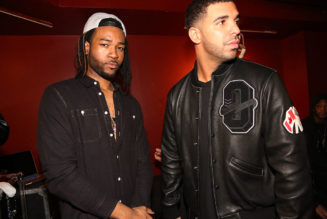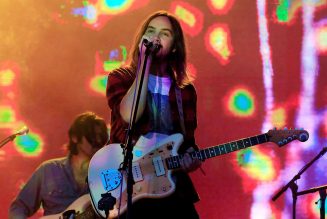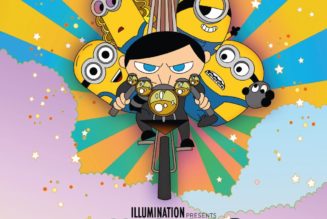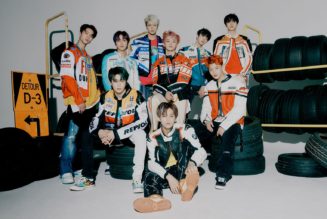
This Saturday (March 27), Lindsay and Martin’s new documentary Tina premieres on HBO at 8 p.m. ET and will stream on HBO Max. Covering everything from her hard-scrabble childhood to her abusive marriage to Ike Turner to her against-the-odds comeback and global domination in the 1980s, Tina paints a portrait not just of Tina Turner the human but of the Tina Turner narrative, detailing her frustration as she was routinely forced to re-live traumatic incidents from her life during countless press spots. Favoring new interviews with people who knew her instead of celebrity testimonials, Tina serves both as an introduction to the uninitiated and an important summation of her remarkable life and talent for longtime fans.
Ahead of Tina‘s HBO premiere, directors Lindsay and Martin hopped on a Zoom call with Billboard (the latter rocking a t-shirt from a different trailblazing Tina, that of his mother Tina Bell, the pioneering Black woman who fronted early ’80 grunge band Bam Bam) to discuss the challenge of bringing something new to this story and Tina’s surprising reverence toward Jacqueline Kennedy Onassis.
How did you get involved with this – were you approached with the project, or did you seek it out?
Lindsay: We were approached to do this after the producers had made a deal with Tina and her husband Erwin [Bach] to finally do an authorized documentary, I guess you’d call it. We were a little reluctant at first for a few reasons. We were unsure, should two men be telling Tina’s story? And we really respected and admired Tina but we weren’t big fans, so we had to do a bit of education. We felt what her story, so to speak, offers which most other music documentaries don’t is that there’s an actual story there: There is a narrative and a life and things to explore within that life that speak to greater themes and ideas. A lot of other music documentaries are like a music catalog in search of a story.
So going into it, how much access did you know you would have with Tina?
Martin: She had committed to the project, her husband is an executive producer on the film, but going into it we knew we only had her for a limited amount of time, contractually. Once we made the decision to commit to the story it was, for us, being transparent about the things we wanted to explore. Part of that came out of early conversations with her and recognizing that the trauma of her past is bubbling beneath the surface and that directed us toward the POV we took. There’s essentially two main characters: it’s Tina and then the narrative Tina, and can we get Tina’s perspective on that narrative.
I don’t know if she was fully aware of the state of documentaries now, I think she still associated it with like a VH1 kind of TV doc, but because we were navigating a space that tried to preserve the integrity of her voice and her POV on this narrative — which I don’t think she’s ever fully explored — we were able to build a rapport with her and she kept inviting us back. So what was supposed to be a contained amount of time with her ended up being, we went out to Zurich to shoot multiple times around the house, we continued to do pickup interviews with her, and as we started to understand more and more what the narrative would be, she actually started understanding that we were making a proper film. That was a journey we went on together.
One thing you explore in the documentary is that when she told the story of Ike Turner’s abuse in the 1981 People magazine interview, and then with the I, Tina book written with Kurt Loder, she thought “Okay, I’ve told it, now I can stop talking about it,” because it was traumatizing to keep reliving. I know they approached you with the project but then you’re once again put in the position of dredging up this traumatic subject. How did you approach that discussion?
Linsday: We were fortunate enough to get a few pieces of archive, being the People tapes that Carl Arrington did from the 1981 interview, and also Kurt Loder’s tapes from I, Tina, so that gave us some confidence early on that we wouldn’t have to get into the minutiae of these details, especially the really traumatic stuff. We understood that aspect of Tina, we didn’t want to do the same thing, but at the same time, we were pretty transparent with her that we’d have to talk about some of this stuff. It’s not like she is like “I don’t want to talk about it.” She doesn’t like doing press because she always feels people are asking her the same thing. But she’ll talk about it. She’s very aware there are consequences of that, and she would rather not do it because of the consequences. We went to go meet Tina the first time and we didn’t ask her a single question about Ike. And yet if there was a recording of that conversation, the amount of times she brought him up is revealing. It’s still obviously on her mind. I just think she would rather not be triggered into talking about it all the time. It was a practical thing that we had these tapes and were able in some ways to protect her from that, but we did have to dive into it.
You’re telling a story that’s already been told in the I, Tina book, the What’s Love Got to Do With It film starring Angela Bassett, and the Broadway musical Tina. How do you approach the challenge of bringing something new to her life story?
Martin: We thought about that going into it. That was one of our hesitations: How are we adding value to this narrative? To go back to those early conversations with Tina, discovering that she’s still processing the trauma, because we chose that POV, it only made sense to embrace, actually, all the different tellings of her story. Because that was part of what potentially triggered that trauma. Once we made that decision, that ended up solidifying the identity of the film and determined how we would cast the film. Rod Stewart’s not in it, Mick Jagger’s not in it, it’s not populated by A-list celebrities; it’s predominantly populated by people who have some kind of intimate relationship with her or are scribes of her narrative. Or Angela Bassett, who’s embodied her. They’re the voices who give it that meta layer without leaning too heavily into the meta. In that approach, we thought that was giving it a new POV on Tina’s story. And with the exception of her second book, My Love Story, most of the retellings of her narrative end with the success of “What’s Love Got to Do With It” [Hot 100 No. 1 in 1984] or the Rio show [in 1988], that’s the cap of her story. And we felt if we can go past that because the throughline is really more this pursuit of love. If we go past that, we’re expanding on the narrative of Tina Turner.
What was your impression of her, just as a person sitting in a room with you?
Lindsay: She’s super warm, inviting and humble. There’s no doubt you are with an icon – it’s Tina Turner, you feel the energy of her walking in a room – but she’s very humble. Very quickly you realize, “oh, I’m at the house of somebody who has invited me here and we’re sitting around having coffee.” It’s just not often are you hanging out on chairs that belonged to one of the kings of France at one point. (laughs) The aesthetics are different but, we’ve said in a bunch of different interviews, it’s always annoying when you hear people say, “Oh, this celebrity is down to earth.” Because we’ve also had enough experience with celebrities to know that’s bullshit; some of them are driven by things that make them not down to earth. But Tina very much is. It’s a legitimate way to describe her.
One of the cute moments is Tina talking about her relationship with Erwin, and she asks a question and he answers from off camera. Was he present for all the interviews?
Lindsay: He was there for the main interview. At this point, she doesn’t have her manager anymore, it’s more just that he’s there to be with her. She’s making a joke from when they met to how long it took for them to actually get married even though they’d been together and lived together for years. At other times no, a lot of the stuff didn’t end up in the film, but we filmed with her as she was preparing to go to New York for the premiere of the musical, and it’s not like Erwin was hovering around. That’s also a building of trust.
Martin: Yeah, he was there for the main interview, and once we built a nice rapport with her, even filming the house, that was something we wanted to do, but we hadn’t proposed it to her. She’s the one who invited us to film after spending some time with us. And then every time we were in Zurich, she would invite us over, we’d take an opportunity to do a pickup interview. At that point maybe Erwin is making breakfast while Tina’s doing the interview while the crew is shooting around the property. It became very relaxed.
I’m glad you got the footage of her house — her palace, really. She’s been retired there so long, we’ve really never seen it, and I’ve always been curious, just trying to picture her daily life.
Lindsay: That was something we wanted to do more of actually. When we initially talked about it, Erwin was like, “I don’t know guys, that’s in music films when there’s nothing else to talk about, you show the house.” In our interview with Tina, we came to, to your point, that house almost is a Shangri-La for her. It is the place she has found peace, so it was to be presented in that way. Not, you know, Cribs.
Was there anything you simply didn’t have time to include, either while interviewing her or bits you had to leave on the cutting room floor?
Lindsay: So much. This could have been a 10-hour miniseries. There’s a disturbing amount of her being interviewed by male hosts and being asked the most… it just makes your skin crawl. Objectifying her, asking very inappropriate questions. Ultimately it would have been a double beat to asking about her life with Ike so we didn’t ultimately include it, but it showed the sexism she had to endure.
Martin: In a bigger picture sense, the film doesn’t lean that much into the artistry of Tina, so it would be nice to at least create a space to explore that. The only other thing is her fascination with Jackie O is something we tried to weave into the film. We had multiple iterations where there’s this short anecdote about her meeting her for the first time. Dan, when he was interviewing her, he posed the question, “is there anyone you ever looked up to?” Because Tina didn’t understand the fervor behind her adoration. To put it in context he asked, “well, is there anyone you’ve ever looked up to?” And to our surprise she said, “Jackie Kennedy.” And she went into this anecdote where she got choked up talking about watching her in the funeral and how she maintained her dignity. In thinking about that, it said so much about Tina and her own past, trauma and her level of professionalism and her preservation of dignity and how she’s seen in the public eye, and the importance of optics. It was illuminating about her character, but unfortunately we couldn’t find a place for it.
Lindsay: We tried. We put that sequence all over the place, but it never worked, unfortunately.
